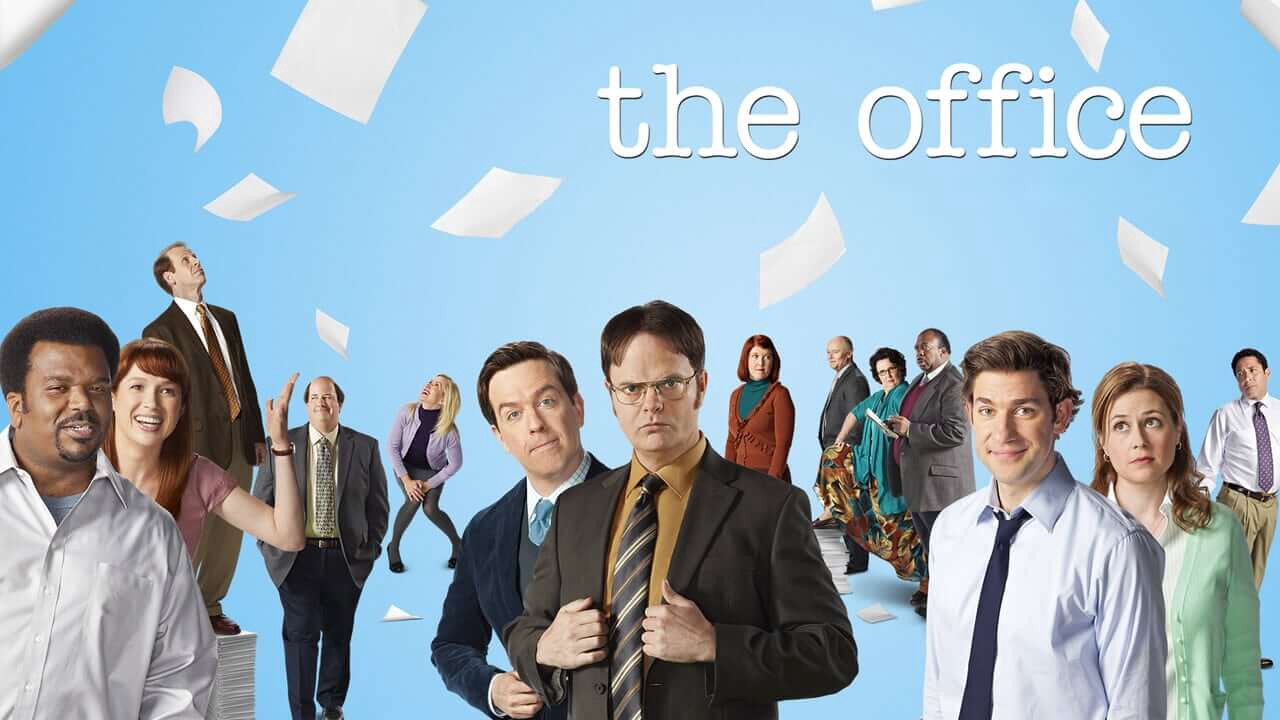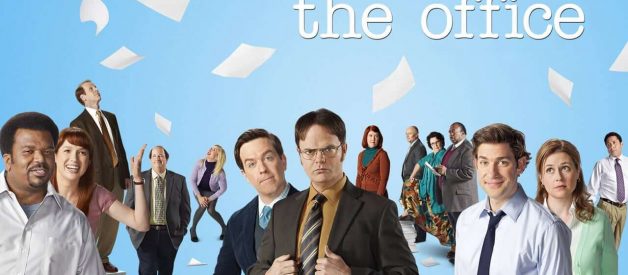They were all amoral psychopaths, even Jim and Pam
 NBC Universal Image
NBC Universal Image
This past summer, we learned that, at the end of 2020, ?The Office? will no longer be available on Netflix because NBCUniversal ? who owns the show ? wants to have it on their own streaming service.
For me, the weirdest thing about this news was that anyone thought it was news. Apparently, ?The Office? has been one of the most popular and widely streamed shows on Netflix. I had been blissfully unaware of that fact.
And now my faith in humanity is shaken.
Until Netflix made this announcement nearly 18 months in advance, I thought we had all agreed that ?The Office? was a terrible show and we were never to speak of it again.
Let me be clear: I?m not saying ?The Office? has become terrible in hindsight thanks to our newfound wokeness. I?m saying it was a terrible, horrible, no good, very bad show almost from its inception.
I know this because, like an idiot, I watched every single episode. You all know it too, even if you won?t admit it.
The show?s awfulness stems from one simple fact: The characters ? pretty much every single one of them ? were all bad people.
Sure, the show wanted you to see Michael Scott (Steve Carell) was a well-meaning boss who simply lacked self-awareness and tried too hard to make people like him. But, what was there to like?
Others have cataloged Michael?s seedy history in great detail. So I won?t delve too deep here. But, listing off the top of my head, this is a character who:
? Ruined more than one coworker?s wedding
? Outed and then sexually assaulted a gay subordinate
? Organized a ?Diversity Day? to highlight his own racism
? Framed the HR rep for drug possession
? Hit a coworker with his car
I?m barely scratching the surface here. Michael, whose antics tended to dominate storylines as the show went on, was a raging sociopath.
Yet, those who made the show seemed to believe we were rooting for him.
We were supposed to cheer when he fell in love with a much more likable character, and then be sad when she left him.
We were supposed to tear up when he left Scranton for good ? Pam even chased him to the airport to give him a hug!
Why?
Here?s the kicker: If you fell for it and actually ended up liking Michael, that makes you a bad person. Not as bad as Micheal himself, but definitely in need of social rehabilitation.
The main goal in almost every episode of ?The Office? was to torment and embarrass Michael. Every episode featured a climax where he would do or say something that made our skin crawl, usually at great risk to his professional or social life.
If Michael was a villain, it would be understandable for people to enjoy seeing him get what he deserved every week. But he wasn?t the villain. He was the clueless-yet-lovable boss who who oversaw a band of other equally lovable misfits.
So why did we all tune in to watch the writers torture this ?good? guy for like six seasons? I ask that seriously, because I don?t know the answer. Frankly, the very notion seems sadistic to me.
Defenders of ?The Office? will tell usit was ?cringe humor.? The awkwardness, they?ll say, is what made it funny.
I suppose social awkwardness and humiliated protagonists can be funny, but what kind of sick person builds an entire show around that?
The more important question is: What kind of sick person enjoys watching that for eight seasons?
It doesn?t end with Michael Scott. Almost every major character on ?The Office? was an objectively evil person.
Dwight Schrute was a maniac who, among many other things, stored weapons in the office, slept with coworkers? fiances, and killed his ex-girlfriend?s cat.
In the early seasons, Dwight was someone who seemed slightly more eccentric than some guy you used to work with. You could relate to it on some level. By season four, Dwight, with no trace of irony, asked a dwarf he met at a nightclub if he had magic powers.
Funny right?
Yet, like Michael, the writers wanted you to root for Dwight. His wedding was a highlight of the final season. It came after years of trying to force a Ross-and-Rachel vibe between Dwight and Angela, another unsympathetic character.
If you thought Dwight?s antics were funny, you were either laughing at A) a cartoonish bad guy getting his comeuppance or B) a basically good-natured person with severe mental illness being exploited for laughs.
The first option is not what the show intended. The second, once again, makes you a bad person.
And, by all means, go ahead and laugh at Mose, Dwight?s severely disabled cousin. There?s nothing at all discomforting about that.
Those of you clinging to the notion that you could enjoy ?The Office? without sacrificing your soul are likely now insisting that you only watched it for Jim and Pam. After all, they were the heart of the show, right?
We all loved those first few seasons where Jim struggled with his affection for the unattainable Pam. We cheered when he moved in on her, despite her engagement to someone else.
And you all laughed as Jim tried to impress Pam by bullying the office weirdo with meticulously planned pranks that only got more cruel and sadistic over time.
But, he made goofy faces at the camera. That made him alright.
Most of the remaining characters were one dimensional objects of ridicule. They all had the same basic job description on the show: say something weird to the camera and stand there while the audience pointed and laughed at how crazy, fat, religious, lonely, or douchey they were.
Man, what a good time.
As the show started to lose steam, they brought in Ed Helms to play Andy Bernard ? the Nard Dog! Essentially, his purpose was to stir up fan theories about how all the characters were dead, that Dunder Mifflin was actually hell, and he was Satan?s insecure little minion.
Seriously, the Nard Dog was the worst.
You may say I?m nitpicking or thinking too much about all this. And you may be onto something.
Yet, there are apparently major corporations vying for the right to send ?The Office? through the internet and onto people TVs. They wouldn?t be doing that unless a large number of people demanded it. Such demands wouldn?t exist in a remotely decent society.
This show?s enduring popularity is credible evidence that God has abandoned us, if he was ever there at all.
Yet, there is a silver lining to the black, plague-invested cloud that is the continued existence of ?The Office.? Three words: ?Parks and Recreation.?
Greg Daniels was the creator of the American version of ?The Office.? He was also a co-creator of ?Parks and Recreation.? Without the success of the former, we almost certainly wouldn?t have the latter.
Maybe there is a God.
?Parks and Recreation? was great show largely because it was the antithesis of the ?The Office.?
Every character in ?Parks and Recreation? was written and portrayed with obvious care and affection. Even the ?bad guys.? You can?t tell me for a minute that you don?t love Councilman Jamm or Tammy Swanson, both of whom were always antagonists.
When ?Parks and Rec? added a side a character that was unrealistically weird or eccentric, the audience could laugh because they were hilarious, not because the humiliated them for cheap laughs.
Plus, Jean Ralphio.
I could I rest my case on Jean Ralphio. But there?s more to say.
Daniels? co-creator on ?Parks and Rec? was Michael Schur, who went on to create ?Brooklyn Nine-Nine? and ?The Good Place,? two of the best comedies on TV that, like ?Parks and Rec,? have an obvious affection for all their characters. The audience can like and root for the characters in both these shows ? even the bad guys ? without losing a piece of their humanity.
So, yes, we should all be grateful that the ?The Office? existed at one point. Its progeny are worth the years of regret we should all be feeling.
But, there?s no reason for anyone to pretend they still like ?The Office.? Instead, we should all be willing to let it take its place beside ?Entourage? in a vault labeled: ?Terrible Shows Made By and For Terrible People.?


